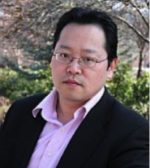
Full Professor Julian Cheng
The School of Engineering, Faculty of Applied Science, at The University of British Columbia, Okanagan campus in Kelowna, BC, Canada.
80 Years of Research on Sum of Lognormal Random Variables: Recent Breakthroughs and Applications in Wireless Communications (cancelled)
Time & Date: TBA, September 2019
Location: TBA, UBC Okanagan Campus
Registration: TBA
Abstract:
The distribution for the sum of lognormal random variables finds applications in many science and engineering disciplines, and it is particularly important for wireless communication engineers. However, the distribution for the simplistic sum of independent lognormal random variables is analytically intractable, and it is more so for a sum of correlated lognormal random variables with non-identical parameters. In 1934, Wilkinson from Bell Telephone Labs first studied this problem in an unpublished work. Since then, various approximations have been proposed in the literature. All these approximations fail to accurately quantify the left tail (or right tail) behavior of the distribution function of a sum of lognormal random variables. In this talk, in the context of diversity receptions over lognormal fading channels, we first present that the left tail distribution of the sum of independent lognormal random variables can be accurately represented by a Marcum Q-function. The proposed analytical result outperforms all existing well-known sum of lognormal approximations. Using a different approach, we then extend the problem to a sum of correlated and non-identically lognormal random variables, and show that its left-tail distribution can again be represented by another Marcum Q-function. Our study reveals a number of new and surprising engineering insights into the transmission characteristics over the lognormal fading channels. For example, for the dual-branch case, we show that the outage performance of negatively correlated lognormal channels is better than that of independent lognormal channels. We also show that under certain parameter conditions, one of the two lognormal channels can contribute no performance gain to the diversity reception systems. This implies that one link can be discarded without causing asymptotic performance loss. These new findings can guide the communication engineers to design better systems for transmission over the lognormal fading channels.
Speaker Bio:
Julian Cheng received his PhD degree in electrical engineering from the University of Alberta, Edmonton, AB, Canada. He is currently a Full Professor in the School of Engineering, Faculty of Applied Science, at The University of British Columbia, Okanagan campus in Kelowna, BC, Canada. His current research interests include wireless communication theory, wireless networks, optical wireless communications, and quantum communications. Dr. Cheng has served as a member of technical program committee for many IEEE conferences and workshops. He co-chaired the 12th Canadian Workshop on Information Theory (CWIT 2011) in Kelowna, Canada. In 2012, he chaired the 2012 Wireless Communications in Banff, Canada. Dr. Cheng also chaired the sixth IEEE Optical Wireless Communications Symposium at the 2015 IEEE Global Communications Conference. He now volunteers as an Area Editor for IEEE Transactions on Communications. In the past, he served as an Associate Editor for IEEE Transactions on Communications,IEEE Transactions on Wireless Communications, IEEE Communications Letters, and IEEE Access, and was a past Guest Editor for a special issue of IEEE Journal on Selected Areas in Communicationson optical wireless communications. Currently, he serves as the President of the Canadian Society of Information Theory.
For further information please contact: Julian Cheng (email: Julian.Cheng at ubc.ca) or/and Youry Khmelevsky (email: Youry at IEEE.org)
Refreshments will be provided
